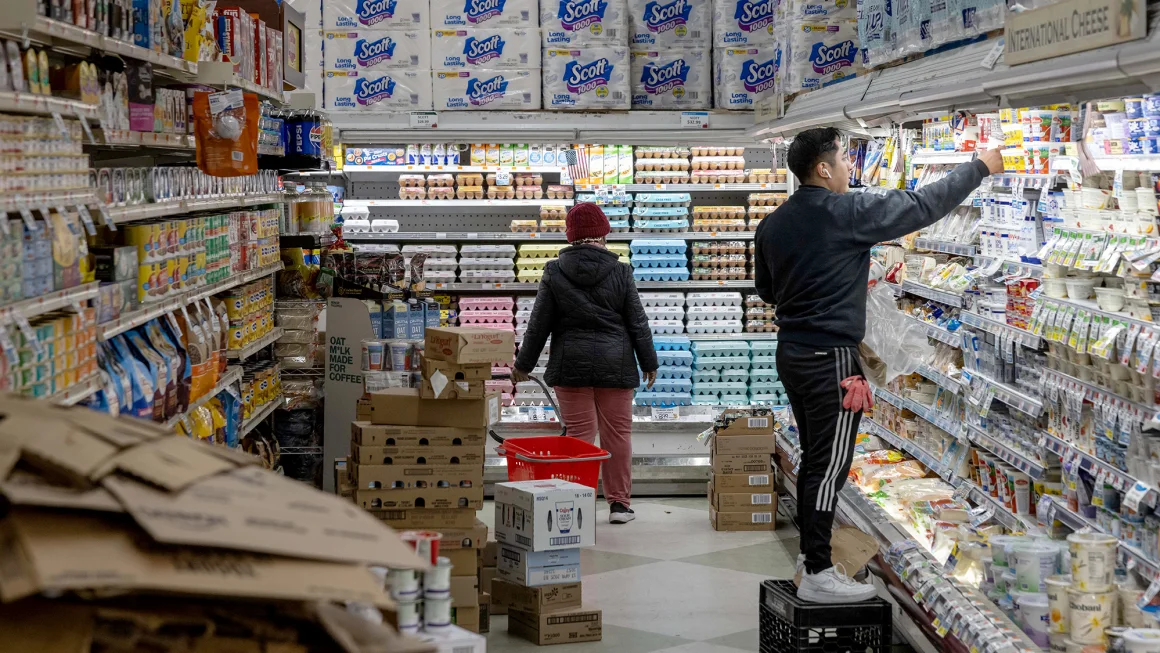Last month’s spending at US stores was far lower than anticipated, which is concerning because it may indicate that American consumers are beginning to tap out.
According to the Commerce Department, retail sales increased 0.2% in February compared to January, which was downwardly revised to a 1.2% loss.
In a FactSet poll, economists predicted a gain of 0.7%, which was far more than that. Seasonal variations but not inflation are factored into the calculations.
Businesses and consumers are feeling very uncertain as a result of President Donald Trump’s acrimonious trade spat with the United States’ largest trading partners. Many consumer polls have shown that consumers are cautious, and they now appear to be modifying their buying habits in line with this. About one-third of all US expenditure goes towards retail sales.
Concerns that the US economy is slowing down and even entering a recession are being exacerbated by weak consumer spending statistics. Those concerns were not allayed by Monday’s retail report.
Last month, department stores saw the biggest decreases in spending (-1.7%), followed by restaurants and bars (-1.5%) and petrol stations (-1%). Online and health-store sales increased 2.4% and 1.7%, respectively, in the meantime.
However, there was some positive news in Monday’s report: According to the report, retail expenditure increased 1% monthly in February, fully recovering from the 1% decrease in January, excluding sales at petrol stations, auto dealerships, building material stores and restaurants (referred to as the “control group”). That exceeded the 0.4% increase that economists had predicted.
In a statement released on Monday, March 17, 2025, Jonathan Moyes, head of investment analysis at Wealth Club, stated that investors have been hoping that the powerful US consumer will reassure them that everything is well on Main Street because sentiment has been so bad.
“They failed to discover it, and the US consumer is beginning to appear a bit peaky as retail sales came in lower than anticipated.”
The alarm is being raised by retailers.

Credit: CNN
Recently, executives at retail establishments across America have issued warnings about shoppers feeling overburdened and being frugal with their purchasing. If Trump’s trade war gets out of hand, some retailers have stated that they will have to increase their prices.
“Our customers continue to report that their financial situation has gotten worse over the last year as they have been negatively impacted by ongoing inflation,” Dollar General CEO Todd Vasos stated during their earnings call last week. “Many of our clients say they just have enough money for the necessities, and some say they have had to make compromises even on these.”
In the meantime, Walmart, the largest retailer in America, anticipates a slowdown in sales and profits this year. During an earnings call last month, the company’s finance chief, John David Rainey, mentioned “uncertainties related to consumer behaviour and global economic and geopolitical conditions.”
Retail CEOs also considered how Trump’s tariffs may impact their business, in addition to the health of US consumers.
“This type of range of tariffs has never been observed before. During a call with analysts earlier this month, Best Buy CEO Corie Barry stated, “Of course, this affects the entire industry. The business anticipates that some tariff expenses will be passed on to retailers by its vendors, making price increases for American consumers highly likely.”
Trump levied 25% tariffs on Canada and Mexico on March 4 but later postponed them once more in response to industry leaders’ protests.
Target CEO Brian Cornell told CNBC that same day that Trump’s tariffs might cause prices for fruits and vegetables imported from Mexico to rise within a few days and that the uncertainty around the tariffs might also hurt the company’s bottom line.


 Trending
Trending 